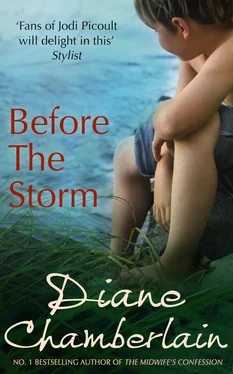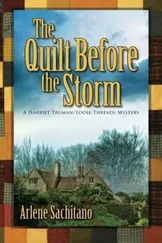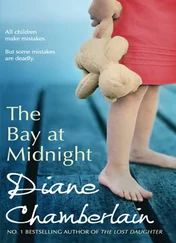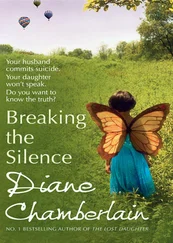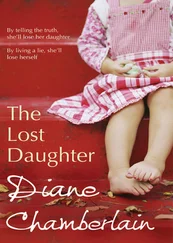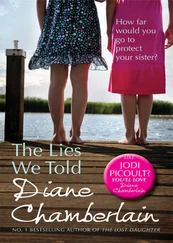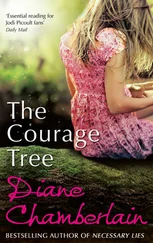We were nearly finished when we heard the downstairs door open and close. “I’m home!” a male voice called.
“And your dinner’s cold as ice!” Miss Emma called back.
I heard him on the stairs. He came into the dining room barefooted, wearing a full-length wet suit, the top unzipped nearly to his navel. He had a lanky, slender build that would never fill out to Jamie’s bulk, even though Jamie had eight years on him. A gold cross hanging from his neck glittered against the tan that must have been left over from summer, and his hair was a short, curly cap of sun-streaked brown. He had Miss Emma’s eyes—blue, shot through with summer sky.
“Hey.” He grinned at me, pulling out the chair next to Jamie.
“Go put some clothes on,” Daddy L said.
“This is Laurel,” Jamie said. “And this is Marcus.”
“Hi, Marcus,” I said.
“You’re a sandy mess,” Miss Emma said. “Get dressed and I’ll heat you a plate in the microwave.”
“Not hungry,” Marcus said.
“You still need to change your clothes if you’re going to sit here with us,” said his father.
“I’m going, I’m going.” Marcus got up with a dramatic sigh and padded toward the bedrooms.
In a few minutes, I heard the music of an electric piano. The tune was halting and unfamiliar.
Jamie laughed. “He brought the piano with him?”
“If you can call it that,” Miss Emma said.
Daddy L looked at me. “He wants to play in a rock-and-roll band,” he explained. “For years, we offered to buy him a piano so he could take proper lessons, but he said you can’t play a piano in a band.”
“So he bought a used electric piano and is trying to teach himself how to play it,” Miss Emma said. “It makes me ill, listening to that thing.”
“Ah, Mama,” Jamie said. “It keeps him off the streets.”
After we’d eaten the most fabulous banana pudding I’d ever tasted, I wandered down the hall to use the bathroom. I could hear Marcus playing a song by The Police. When I left the bathroom, I knocked on his open bedroom door.
“Your mother said you’re teaching yourself how to play.”
He looked up, his fingers still on the keys. He’d changed into shorts and a navy-blue T-shirt. “By ear,” he said. “I can’t read music.”
“You could learn how to read music.” I leaned against the doorjamb.
“I’m dyslexic,” he said. “I’d rather have all my teeth pulled.”
“Play some more,” I said. “It sounded good.”
“Could you recognize it?”
“That song by The Police,” I said. “‘Every Breath You Take’?”
“Awesome!” His grin was cocky and he had the prettiest blue eyes. I bet he was considered a catch by girls his age. “I’m better than I thought,” he said. “How about this one?”
He bent over the keys with supreme concentration, the cocky kid gone and in his place a boy unsure of himself. The back of his neck looked slender and vulnerable. He grimaced with every wrong note. I struggled to recognize the song, to let him have that success. It took a few minutes, but then it came to me.
“That Queen song!” I said.
“Right!” He grinned. “‘We are the Champions.’”
“I’m impressed,” I said sincerely. “I could never play by ear.”
“You play?”
“I took lessons for a few years.”
He stood up. “Go for it,” he said.
I sat down and played a couple of scales to get the feel of the keyboard. Then I launched into one of the few pieces I could remember by heart: Fur Elise.
When I finished, I looked up to see Jamie standing in the doorway of the bedroom, a smile on his face I could only describe as tender. I knew in that moment that I loved him.
“That was beautiful,” he said.
“Yeah, you’re good,” Marcus agreed. He tipped his head to one side, appraising me. “Are you, like, a sorority chick?”
I laughed. “No. What made you ask that?”
“You’re just different from Jamie’s other girlfriends.”
“Is that good or bad?” I asked.
“Good.” Marcus looked up at his brother. “She’s cool,” he said. “You should keep this one.”
I heard the sound of dishes clinking together in the kitchen and left the brothers to help clean up. I found Miss Emma up to her elbows in dishwater.
“Let me dry.” I picked up the dish towel hanging from the handle of the refrigerator.
“Why, thank you, darlin’.” She handed me a plate. “I heard you playing in there. That was lovely. I didn’t know a sound like that could come out of that electric thing.”
“Thanks,” I said, adding, “Marcus plays really well by ear.”
“It’s his choice of music that makes me ill.” I had the feeling nothing Marcus did would be good enough for her.
“It’s what everybody listens to, though,” I said carefully.
She laughed a little. “I can see why Jamie likes you so much.”
I felt my cheeks redden. Had he talked about me to his parents?
“You care about people like he does.”
“Oh, no,” I said. “I mean, I care about people, but not like Jamie does. He’s amazing. Three weeks ago, I almost killed him. I did. Now I feel like…” I shook my head, unable to put into words how I felt. Taken in. By Jamie. By his family. More at home with them than I’d felt in six years with my icy aunt and silent uncle.
“Jamie does have a gift with people, all right,” she said. “The way some people are born with musical talent or math skills or what have you. It’s genetic.”
I must have looked dubious, because she continued.
“I don’t have the gift, Lord knows,” she said, “but I had a brother who did. He died in his thirties, rest his soul, but he was…it’s more than kindness. It’s a way of seeing inside a person. To really feel what they’re feeling. It’s like they can’t help but feel it.”
“Empathy,” I said.
“Oh, that stupid tattoo.” She squirted more dish soap into the water in the sink. “I about had a conniption when I saw that thing. But he’s a grown man, not much his mama can do about it now. He doesn’t need that tattoo.” She scrubbed the pan the corn bread had been baked in. “My aunt had the gift, too, though she said it was more of a curse, because you had to take on somebody else’s pain. We were at the movies this one time? A woman and boy sat down in front of us before the lights were shut out. They didn’t say one single word, but Aunt Ginny said there was something wrong with the woman. That she felt a whole lot of anguish coming from her. That was the word she used— anguish. ”
“Uh-huh,” I said, keeping my expression neutral. Miss Emma was going off the deep end, but I wasn’t about to let her see my skepticism.
“I know it sounds crazy,” she said. “I thought so too at the time. When the movie was over, Aunt Ginny couldn’t stop herself from asking the woman if she was all right. Ginny had a way of talking to people that made them open right up to her. But the woman said everything was fine. As we were walking out of the theater, though, and the little boy was out of earshot, she told us that her mother’d had a stroke just that morning and she was worried sick about her. Ginny’d picked right up on that worry and took it inside herself. She ended up with a bleeding ulcer from taking on too many other people’s worries. That’s how Jamie is, too.”
I remembered Jamie after the accident, when I wondered why he’d expressed no anger toward me. You already feel like crap about it, he’d said. Why should I make you feel any worse?
I shivered.
Miss Emma handed me the corn-bread pan to dry. “Here’s what happens with people like Jamie or my brother or my aunt,” she said. “They feel what the other person feels so strong that it’s less painful for them to just…give in. I knew when Jamie was small that he had the gift. He knew when his friends were upset about something and he’d get upset himself, even if he didn’t know what had them upset in the first place.” She reached into the dirty dishwater and pulled the stopper from the drain. “One time, a boy he barely knew got his dog run over by a car. I found Jamie crying in bed that night—he couldn’t have been more than eight or nine. He told me about it. I said, you didn’t even know that dog and you barely know that boy. He just kept crying. I thought, oh Lord have mercy on me, please. Here’s my brother and Aunt Ginny all over again. It’s a scary thing, raising a child like that. Most kids, like Marcus, bless his heart, you have to teach them how other children feel and how you need to be sensitive to them and all.” She pulled another dish towel from a drawer and dried her hands on it. “With Jamie, it was the opposite. I had to teach him to take care of himself.”
Читать дальше
